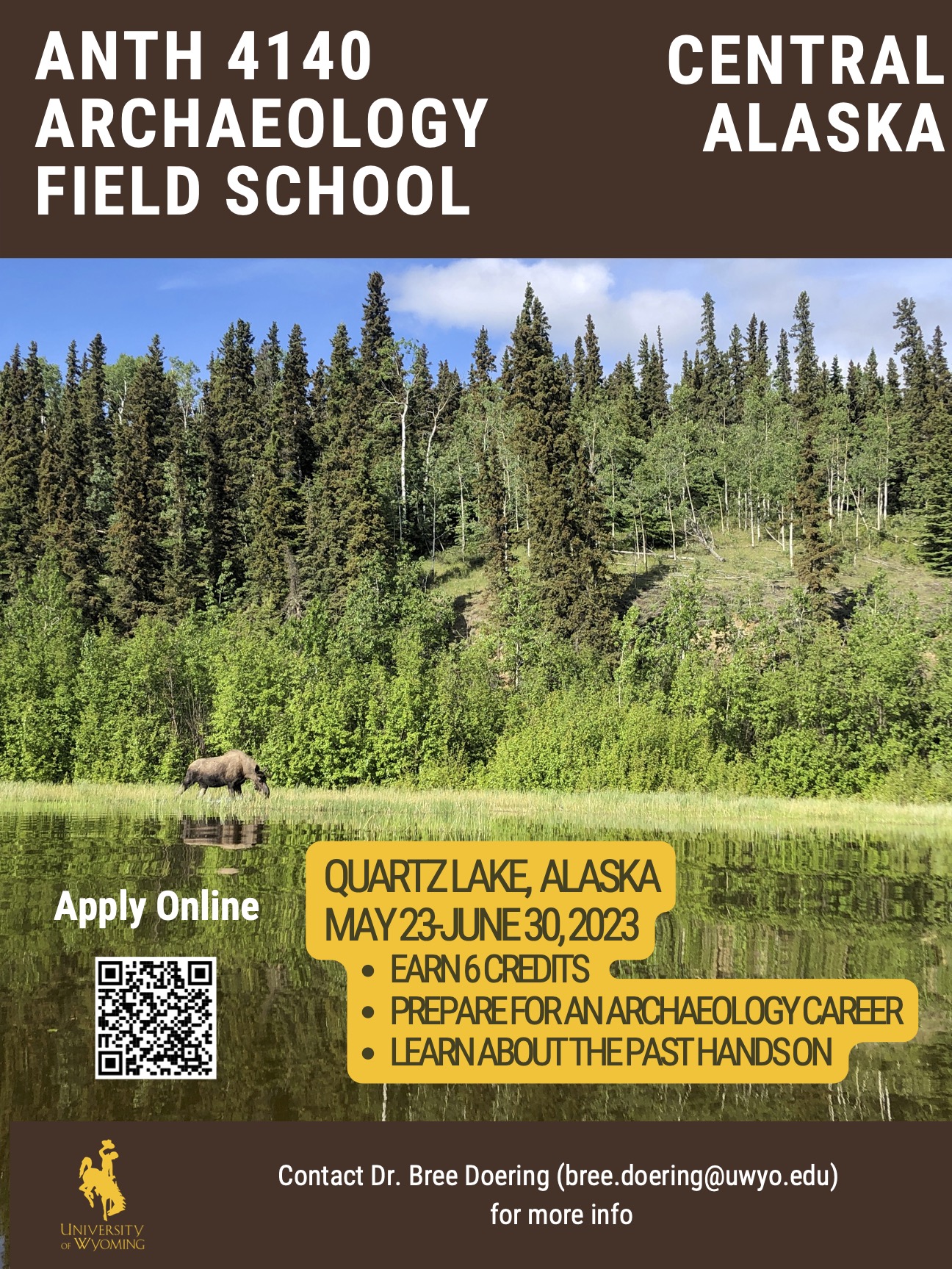Fieldwork
This listing expired on June 30, 2023. Please contact bdoerin2@uwyo.edu for any updated information.

Location: Quartz Lake, Alaska
Season: May 23, 2023 to June 30, 2023
Deadline Type: Rolling
Website: https://sites.google.com/uwyo.edu/anth-4140-alaska/home
Program Type:
Field School
RPA Certified:
No
Affiliation:
University of Wyoming
Project Director:
Dr. Bree Doering
Project Description:
The University of Wyoming Department of Anthropology, in collaboration with the University of Alaska Fairbanks Museum of the North and residents of Quartz Lake, is pleased to announce a field school to take place May 23-June 30 2023.
This 6-credit course is intended for undergraduate majors in Anthropology and is open to students from any college or university. An Introduction to Archaeology (ANTH 1300) or Anthropology course is a prerequisite for this field school. Additional advanced classes in Anthropology are preferred, but not required.
Students can expect three 10-day sessions of archaeological fieldwork at Quartz Lake with a cohort of experienced instructors. The lake features several multicomponent sites with occupations spanning the late Pleistocene to the late Holocene. We aim to expand the central excavation area at the Bachner Site in phases, going deeper in time during each session, conduct auger tests beyond the central excavation area, and survey the lakeshore for artifacts eroding out of the lake’s beaches. Students will also help to analyze finds in the field lab, including lithic material, bones, ochre, and more.
Period(s) of Occupation: Alaskan archaeology is typically separated into coastal and interior groups. Coastal groups were maritime sea mammal hunters and expert fisherfolk. Interior groups tracked caribou across vast distances and maintained complex social networks centered around seasonal salmon runs. This field school focuses on the latter group, and is interested in how Alaskans used lakeside settings throughout the human history of the region. Dene or Athabascans are the descendant community in central Alaska. We know from linguistic and oral historic evidence that Dene have lived here for at least 10,000 years. Dene continue many traditional hunting and fishing practices at seasonal fish camps and during caribou hunts. With oversight of the Tanana Chiefs Conference, archaeologists have done decades of cutting edge research in the Tanana Valley of central Alaska, where this field school takes place. Fish, moose, and swan bones, spear points, microblades, copper awls, and red ochre drawing implements are among the artifacts that we may find this summer. Our excavations are centered on an area of the site that may have been used as a dwelling or long term occupation. Many Dene or Athabascan groups lived in long term villages on lakes. Our research this summer will help to determine if the site may represent one of these lakeside villages. More generally, our work will help archaeologists to better understand how lakes were used at different times in the past. This will help address debates about the use of fish in the past.
Project Size: 1-24 participants
Room and Board Arrangements:
Tuition and fees will be approximately $3,000 total and cover room and board.
The AIA is North America's largest and oldest nonprofit organization dedicated to archaeology. The Institute advances awareness, education, fieldwork, preservation, publication, and research of archaeological sites and cultural heritage throughout the world. Your contribution makes a difference.
Notifications